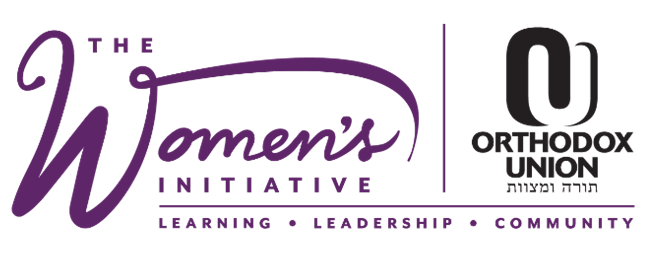----- Forwarded Message -----From: "The Chicago Center" <nsalander@thechicagocenter.org>To: "mates57564@aol.com" <mates57564@aol.com>Sent: Fri, Jan 31, 2025 at 1:52 PMSubject: Eruv AlertEmail from The Chicago Center
ERUV ALERT
The Peterson Park/Lincolnwood Eruv
is down as of now
Status can be checked after 4:00 p.m.
by calling
847-677-3788
ERUV ALERT
The Chicago Center | 6557 Lincoln Ave. | Lincolnwood, IL 60712 US
Friday, January 31, 2025
Fw: Eruv Alert
Fwd: The Daily Thread: Shabbat shalom from NSN!
From: Nachum Segal <nachum@nachumsegal.com>
Date: Fri, Jan 31, 2025, 8:21 AM
Subject: The Daily Thread: Shabbat shalom from NSN!
To: <agentemes4@gmail.com>
|
|
Fw: [-aneinu] Israeli Hostage Agam Berger Used A Siddur She Found In The Ruins Of Gaza
----- Forwarded Message -----From: "'Chicago Aneinu' via chicago-aneinu" <chicago-aneinu@googlegroups.com>To: "myysbyy@aol.com" <myysbyy@aol.com>Cc:Sent: Fri, Jan 31, 2025 at 11:11 AMSubject: [chicago-aneinu] Israeli Hostage Agam Berger Used A Siddur She Found In The Ruins Of Gaza--A remarkable story of emunah and mesiras nefesh has come to light, as details emerge about Agam Berger, one of the Yidden held captive by Hamas. Despite the unimaginable tzaros she endured, Berger remained steadfast in her shmiras hamitzvos, holding tight to kashrus, Shabbos, and even fasting on Yom Kippur and Tisha B'Av. Now, it has been revealed that during her time in captivity, she found a siddur in Gaza and used it throughout her ordeal.
Berger shared that the siddur was likely left behind by soldiers who had previously been in the area. She also related that when her captors attempted to give her a Quran, urging her to take it, she outright refused.
This past Erev Shabbos, Rebbetzin Yaffa Deri, wife of Shas leader R' Aryeh Deri, visited the group of released tatzpitaniyos (female IDF lookouts) who were freed from Gaza and are currently receiving medical care in Beilinson Hospital. While speaking with them, she recounted Berger's inspiring story: "Agam found a siddur in Gaza and fasted on Tisha B'Av."
Meanwhile, Yisroel Hayom also reported on a deeply moving event that took place in Berger's hospital ward. In an expression of hakoras hatov to the Ribbono Shel Olam for their yeshuah, Berger and her fellow tatzpitaniyos—who were captured together in Nachal Oz—gathered with their families for a special hafrashas challah event. With heartfelt tefillos and hodaah, they marked their return home.
These new details add to previous accounts of Berger's determination to hold strong in the face of unimaginable challenges. Despite being surrounded by bloodthirsty reshaim, and under immense pressure, she clung to her Yiddishkeit with unwavering emunah.
(YWN World Headquarters – NYC)
You received this message because you are subscribed to the Google
Groups "chicago-aneinu" group.
-----------------------------------------------------------------------
To respond or post new messages to this group, please insure that your email is sent to Myysbyy@aol.com
-----------------------------------------------------------------------
To unsubscribe from this group, send email to
chicago-aneinu+unsubscribe@googlegroups.com
For more options, visit this group at
http://groups.google.com/group/chicago-aneinu?hl=en
---
You received this message because you are subscribed to the Google Groups "chicago-aneinu" group.
To unsubscribe from this group and stop receiving emails from it, send an email to chicago-aneinu+unsubscribe@googlegroups.com.
To view this discussion visit https://groups.google.com/d/msgid/chicago-aneinu/980951575.5847750.1738343489467%40mail.yahoo.com.
Fwd: Torat Imecha Halacha : Seudah Shelishit
From: OU Women's Initiative <ouwomen@ounetwork.org>
Date: Fri, Jan 31, 2025, 8:32 AM
Subject: Torat Imecha Halacha : Seudah Shelishit
To: <agentemes4@gmail.com>
| |||||||||||||||||||
| |||||||||||||||||||
| |||||||||||||||||||















